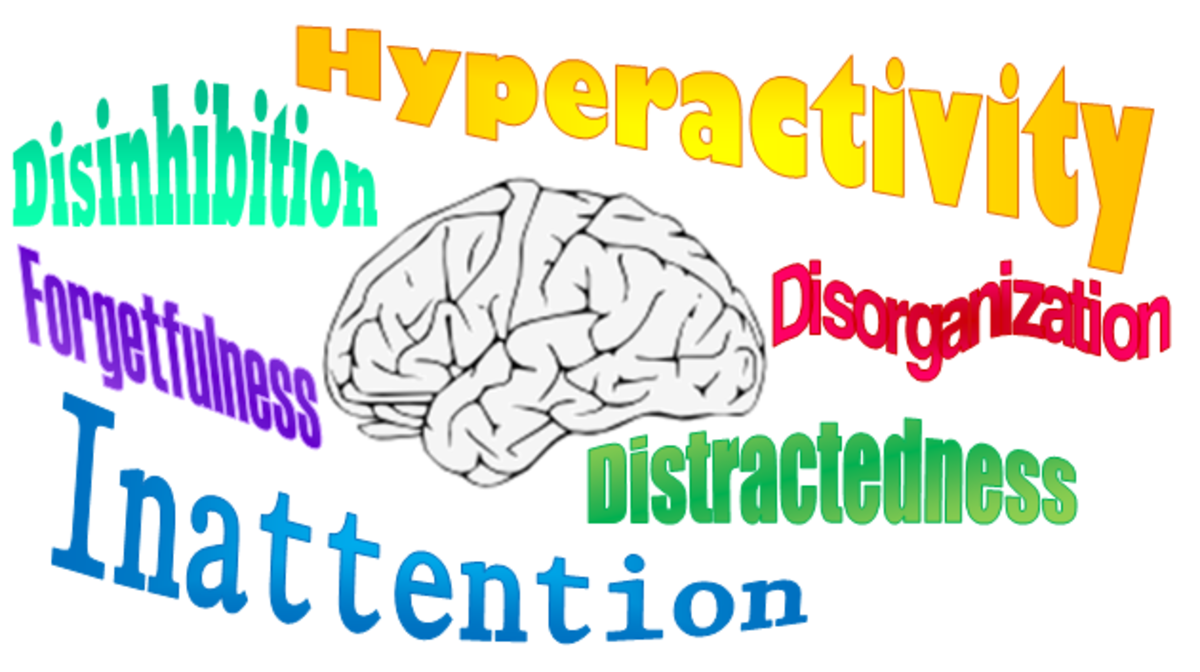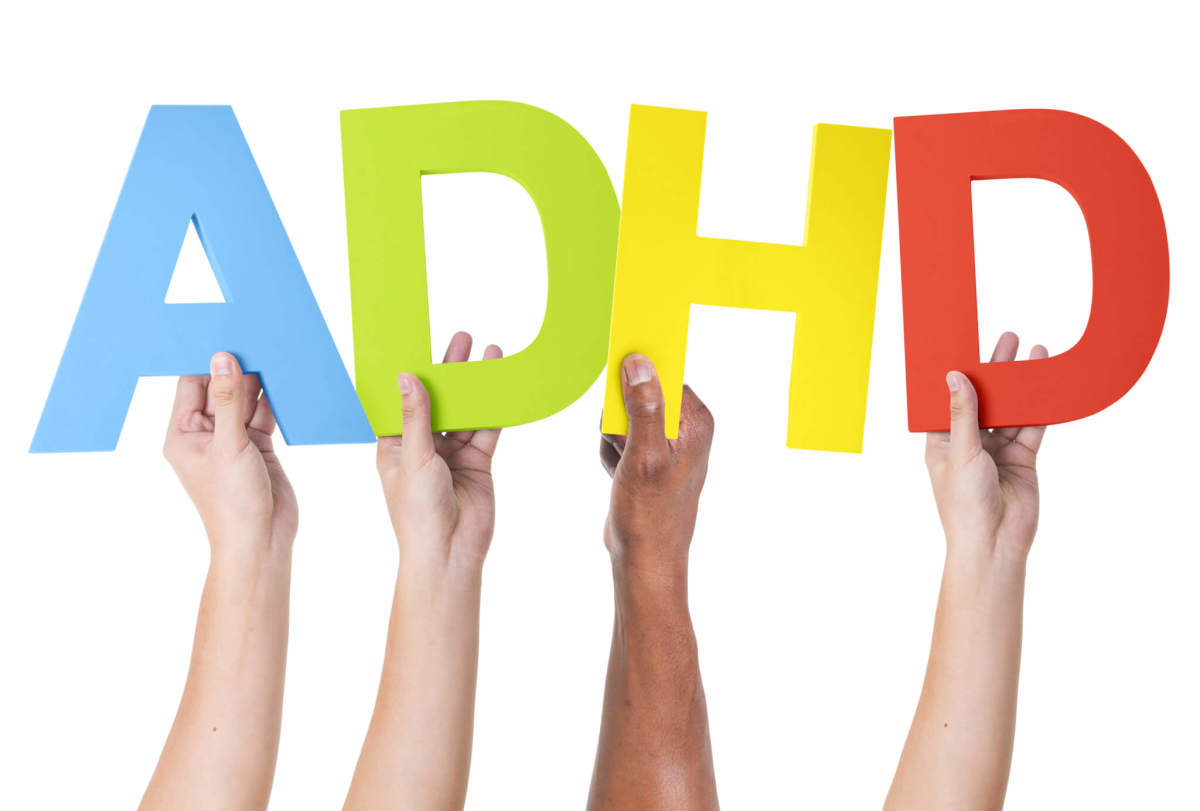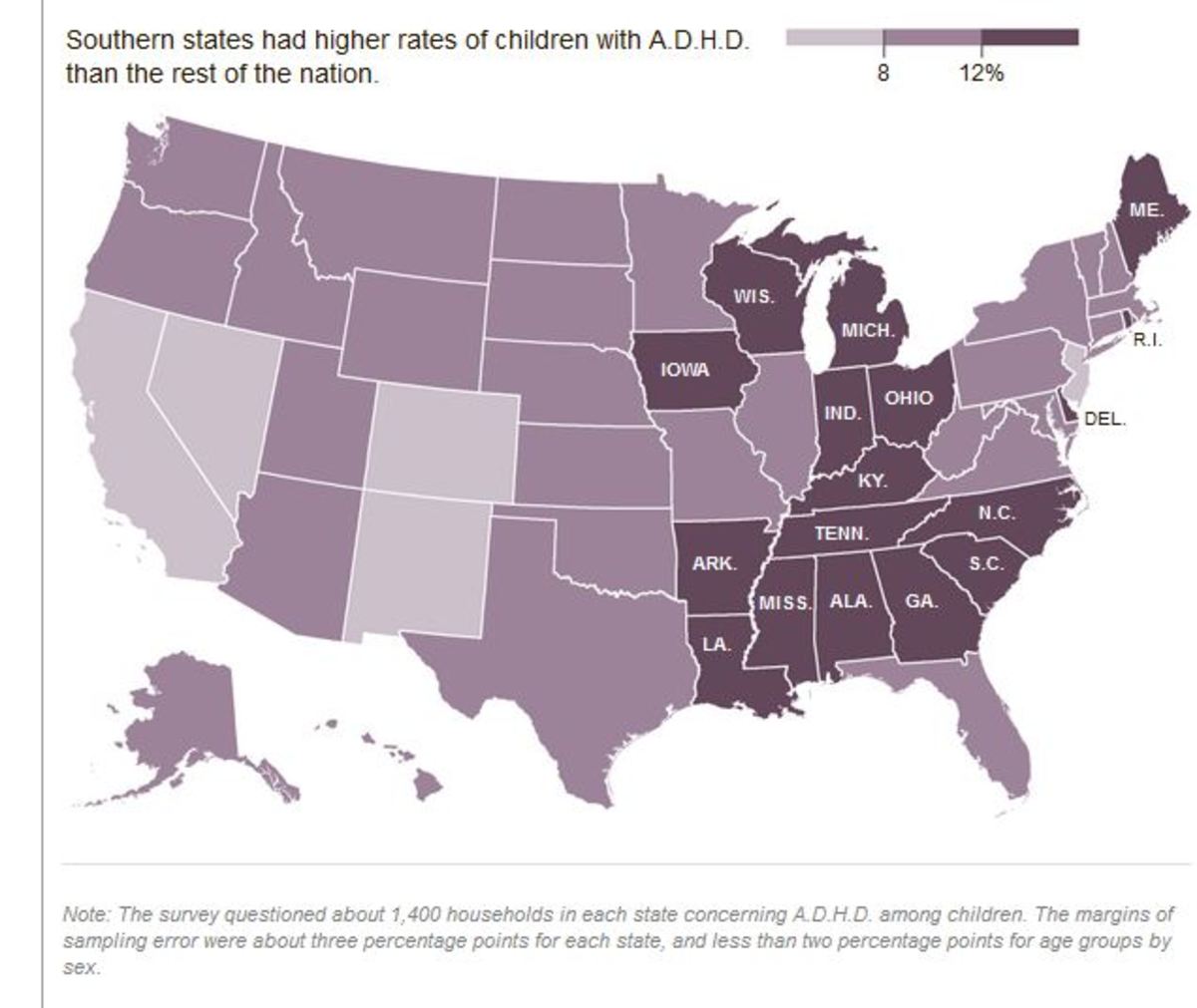Coping With Symptoms Of Adult ADHD
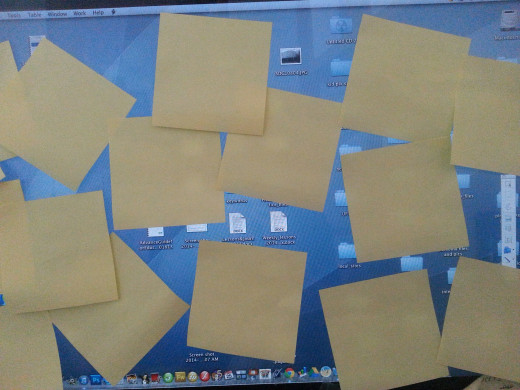
Adults with Attention Deficit Disorder are misunderstood
Success is in the details, but for grownups with Attention Deficit Hyperactivity Disorder keeping track of the details is a nightmare. Life is a constant battle to try to remember everything and get things done. There is the ever-present fear of failure because people with ADHD have had a lot of failures, sometimes making the same mistakes over and over again.
There are experts who believe that ADHD is a myth. They maintain that the disorder can be attributed to a whole host of factors other than an actual brain imbalance. I maintain that the symptoms are real. I don’t believe in medication, but I do believe, and still believe, that incorporating certain lifestyle changes and making some mental adjustments can help anyone with attention deficit problems cope better in their daily lives. It can even help people that may just be slightly ditzy.
I've found ways to compensate for this disorder that have allowed me to lead a productive and successful life. There are certain strategies for coping with these symptoms that have kept me from losing my mind. If anything I suggest helps someone else - even better.
It was brought to my attention a couple of years ago that I had pretty bad Adult ADD, (either that or they were trying to tell me I was a scatterbrain). Once I realized why getting through an average day was so challenging for me, I felt a huge sense of relief. I gained new insight into why some things in my life didn’t make sense.
Accepting and acknowledging that life was a little more challenging, and tiring, for me gave me the insight to be gentle with myself when I made mistakes or forgot things. It also fostered a determination to function normally despite the memory and other cognitive challenges, and there are quite a few challenges:
- Trouble focusing on one task for more than a few minutes.
- Complete absorption in something like a television show or computer game to the exclusion of everything else. Important things get neglected.
- The tendency to grow impatient when having to sit for too long - especially troublesome at important meetings.
- Memory lapses where you can remember the name of an acquaintance from 25 years ago, but can’t recall the name of a co-worker you see on a regular basis.
- Alternating between feeling harried, overwhelmed and exhausted - and at other times manic and hyperactive.
- Acting out from frustration. Adult ADHD sufferers can have a quick fuse because they’re frustrated a lot of the time. They’ll blow up and have a temper outburst, and then completely forget about it 10 minutes later.
I thought everyone had post-it notes plastered all over their home. I assumed everybody worked on five or six projects at the same time without finishing anything. I thought everyone kept to-do lists that they would lose a half hour later. I thought wandering off when I was with a group of friends just made me a little quirky.
Stick to one thing at a time in short bursts:
I’ve learned to keep notes and a notebook in a place where I will not only see it everyday but several times a day. Part of the memory disorder of ADD is an inability to keep track of what needs to be done, so it can actually get done.
People with ADHD have trouble with focus. They may start out doing one task and then get caught up with something that has nothing to do with what they were supposed to do originally. This happens to me all the time. I’ll start off cleaning the fridge and then remember to respond to an email I forgot about. Next thing I know its midnight and I’m too tired to finish the original task of cleaning the fridge.
This difficulty with sticking with one task has haunted me for most of my life. A few years ago I got the hang of working with my tendency to wander. What I do now to compensate is keep a short list on a post-it of two or three projects that need to get done that day.
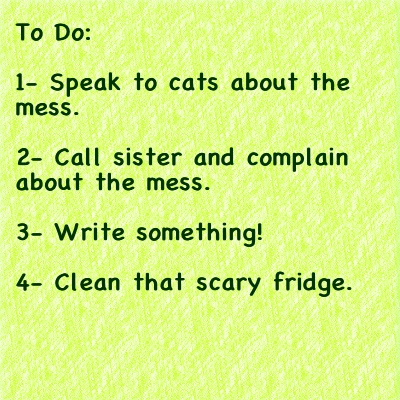
Varying activities can help focus
I try to mix the chores on the list so that each is different, and takes place in a different room of my apartment. This appeals to my ADHD brain because I’m not doing anything for too long – and the variety of tasks keeps my interest. I also keep the time at each activity to no more than 30 minutes. This way I don’t get bored or frustrated spending too much time on one activity.
So, for example, I put a short list on a post-it to complete on a Sunday afternoon when I have some extra time:
I avoid multi-tasking at all costs. So I will do part of one task, move to the next task do part of that, and so on. All of my attention is focused on one thing for a short period of time. For most people multi-tasking rarely works as well as they’d like to think. For those of us with ADHD, it’s a setup to do everything badly. Rotating small chunks of time seems to work well for me. I’m actually finishing projects.
Allow yourself enough time
Another big issue I’ve grappled with is my inability to gauge how much time something will take. This used to result in constant lateness at home, at work, and socially. The lateness got me into a lot of trouble everywhere in my life, since other people perceived my lateness as thoughtless, careless behavior.
It’s true that there are few things more annoying than the person who shows up late for meetings, or sit down dinners. What people with normal attention spans don’t realize is that the person with ADHD is not showing up late deliberately. They really can’t get it together to show up on time.
With ADHD, showing up on time is an obstacle many never overcome. However, it is possible by training yourself to allow more time to get ready for work and social activities.
I remember, as a young adult, expecting everyone to wait for me when I was late. I got a hard life lesson when my friends starting leaving without me. After missing a couple of events I was really looking forward to – I realized that the world is not going to wait on me. It was time to get it together, and stop making other people suffer from my little attention deficit problem.
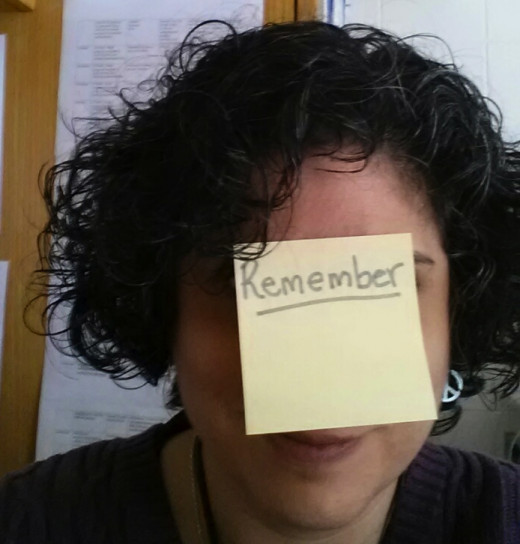
Set up a routine you can live with
Going to bed just a little earlier at night and getting up earlier in the morning has enabled me to get to work on time 95% of the time. I still run into the occasional glitch if anything throws me off, but showing up late is no longer the regular occurrence it once was. I feel better, and more grown up, acknowledging that punctuality is important at work and everywhere else. Regular lateness shows a lack of respect, and I feel like a real grown up finally acknowledging that.
Socially I have learned to allow two or three hours to get ready. I now focus on getting to a destination a few minutes early. While friends and dates were gracious about my lateness in the past, I never enjoyed rushing at the last minute to meet friends. Cliffhangers are exciting in the movies. In real life, constantly rushing because of my inability to grasp time properly became exhausting.
Now that I allow enough time, friends, family and potential dates seem a lot happier and more relaxed towards me. Life got easier once I made a commitment to allow more time to show up for people. I’m no longer tense from the constant last minute rushing around.
Make exercise and meditation part of the routine
Not only did I start getting up earlier, I also worked my way up to a strict morning routine that keeps me focused on getting to work on time. I slowly incorporated several things into my morning routine that help keep me focused and grounded.
First I started with an exercise routine. I started with ten minutes of yoga after my morning cup of coffee. After three weeks of doing the yoga every morning, I added sit-ups. After three weeks of getting used to the yoga and the sit-ups - I added weightlifting. Each new activity took some time to adjust to, but now I’m used to doing these extra things in the morning. Plus, they’re good things, so it helps me face the day with a more upbeat attitude.
Pace yourself at home
Allowing a period of time to get used to the new part of the routine will help you adjust. Then add a little extra time for each new addition to the routine. I added another 15 minutes of meditation and some time to catch up on the computer for a total of an extra hour every morning. With ADHD, staying focused is rough if there is no structure. Adding specific activities in the morning that promote structure and that are good for my body and mind, helped the morning routine flow more easily.
The rest of my workout comes after work. Since I don’t like gyms, I walk home. It’s a hilly three miles, and it helps relieve my stress from my teaching job. It took me awhile to get used to a workout after a hectic day, but now I miss the hike if I don’t do it.
Attention deficit problems at work
Adults who are coping with ADHD get overwhelmed easily when too much is going on. This is why those who are undiagnosed or unaware of their symptoms run into serious problems at work. These ongoing problems can make holding down a job challenging at best and impossible in certain circumstances.
Certain jobs lend themselves well to a scattered way of thinking. My job as a technology teacher is perfect for my ADHD, because I’m never doing one task for more than a few minutes. When I was in my twenties I never believed I could hold down a job in the same place for more than a year. In my current position, I’ve been in the same school for 11 years.
I have children, computers and lots of adults coming at me from every direction every day. You would think this would overwhelm me, but I find it interesting. Every day is different and I never know what’s going to happen next.
If you’re thinking about switching jobs or you’re looking for a job, it’s important to take the attention deficit problems into consideration. Jobs that require a lot of repetition, or that are limited to the same handful of tasks every day can drive ADHD sufferers into a state of acute boredom. Extreme boredom usually leads to getting fired or quitting.
It’s not always possible to control what you do for a living. We’ve all got bills to pay with rampant unemployment or underemployment. However, when possible, if you can apply for jobs that will hold your attention with some variety, you’ll have better success in your work life.
Jobs that involve children or animals are usually a safe bet as are jobs that allow for a lot of activity, traveling and movement such as waitressing, salesperson or delivery person. A nine to five desk job is usually deadly for ADHD sufferers. It was for me. I couldn’t handle being trapped in a cubicle for eight hours a day.
Tell important people that you have ADHD
You’d think this would be easy to do yet many sufferers don’t tell anyone. They hope they can keep it their little secret. The problem is that the symptoms of ADHD are hard to hide.
The best thing I ever did was start telling friends and acquaintances about my little disorder. Suddenly people were a lot more patient. When I suddenly switched topics or wandered away to look at something interesting, people were amused by it rather than angry.
If you have attention deficit problems it will be noticeable to others no matter how well you think you’re covering up for it. Co-workers may notice that you have trouble sitting through meetings without fidgeting or saying something inappropriate. Friends may get annoyed that you’re you don’t seem to be listening.
Telling others gives them the chance to learn more about the disorder, and shows them that you trust them. It’s always better to be honest. They’ll appreciate it and you’ll feel a lot more comfortable about being a little different.
Relieve attention deficit sleep problems
My room is now bare of all electronic devices, except my Nook. On the Nook I keep a couple of extremely boring digital books that put me to sleep after a page or two. I used to get caught up with T.V. shows till all hours of the night. Sometimes I would fall asleep with the T.V. on. I would sleep badly and feel exhausted the next day.
The crankiness and irritation from not sleeping not only affected me. It affected every poor soul who had to deal with me. I am a much more pleasant and relaxed person now because I’m getting enough sleep. The short temper has mostly disappeared. I have a better attitude about everything. I feel happier and more rested. I’m still not Suzy Sunshine everyday, but it’s a lot better.
There are a lot of health experts online who recommend keeping the television watching to a minimum if you want enough sleep. As a former T.V. addict, I am living proof that they are right. We think watching T.V. is relaxing when just the opposite is true.
If you can’t bear to give up your television habit, then pick just one show a night to watch and then turn it off. Treat yourself to a movie once or twice a week and then turn it off.
I now get into bed at least a half hour before I plan on falling asleep. I read a couple of pages of something boring, and the next thing I know – I’m out. The transition time helps my attention deficit brain slow down and lets me sleep better and longer.
So if you are truly committed to feeling better and more rested. You might want to alter your evening routine. Once you get used to doing things differently at night, you’ll be surprised at how much better things seem by day.
Lifestyle modifications will also improve impulsive behavior and outbursts
I used to get very stressed out, and annoyed with people. I would let things irritate me more than they should. Even small frustrations would lead to an overreaction.
Letting someone have it may feel good for a moment, but it ultimately leads to getting a reputation as someone who needs anger management classes.
Everything I’ve mentioned to change the pace in my life has led to a much calmer, happier me. I am able to handle stress in a productive way and not let every little outrage get to me. Friends and co-workers, who’ve known me for 10 years or more, claim that I have come a long way from the person they originally knew.
Does this mean that every day is perfect? No, it’s not. I still forget things. I still get overwhelmed sometimes. I still lose focus and wander off to do other things. I can say, however, that overall my life is a lot calmer and more organized. I am getting more accomplished than I ever dreamed possible.
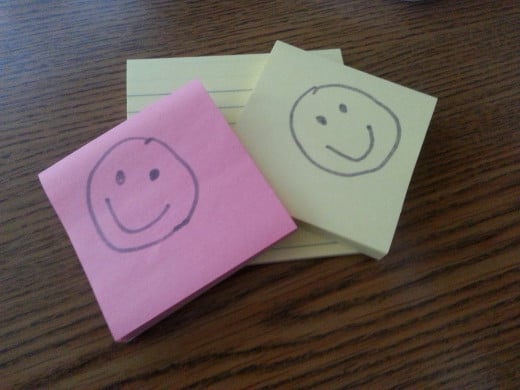
Yes, buy a lot of Post-It notes
Despite all of the lifestyle changes I’ve implemented, I still rely on that old standby – the post-it note. Yes, I could download a fancy app on my smartphone. I’ve tried that and find the learning curve with some of them a bit much to handle. Besides, when the app has a glitch, it can be a nightmare. I was keeping to-do lists on one of the organizer apps when it went haywire…never again.
So now I stick to the trusty post-it note. They come in all shapes, sizes and colors. Some have lines. Some are blank. There seems to be a post-it note for every life situation. I even keep a to-do list on a post-it note tucked into my wallet, which I change daily. Post-its are my friends.
With a good system in place you can function just fine
At the age of 51, I’m in better shape mentally and physically than I was in my 30’s. That is not to say that every day is perfect. I still have stress. I still forget things. The ADHD didn’t go away, I’ve just learned to manage the symptoms better. You can too. It just takes some patience with yourself and a wish to have life run a little smoother.
© Macteacher 2014








